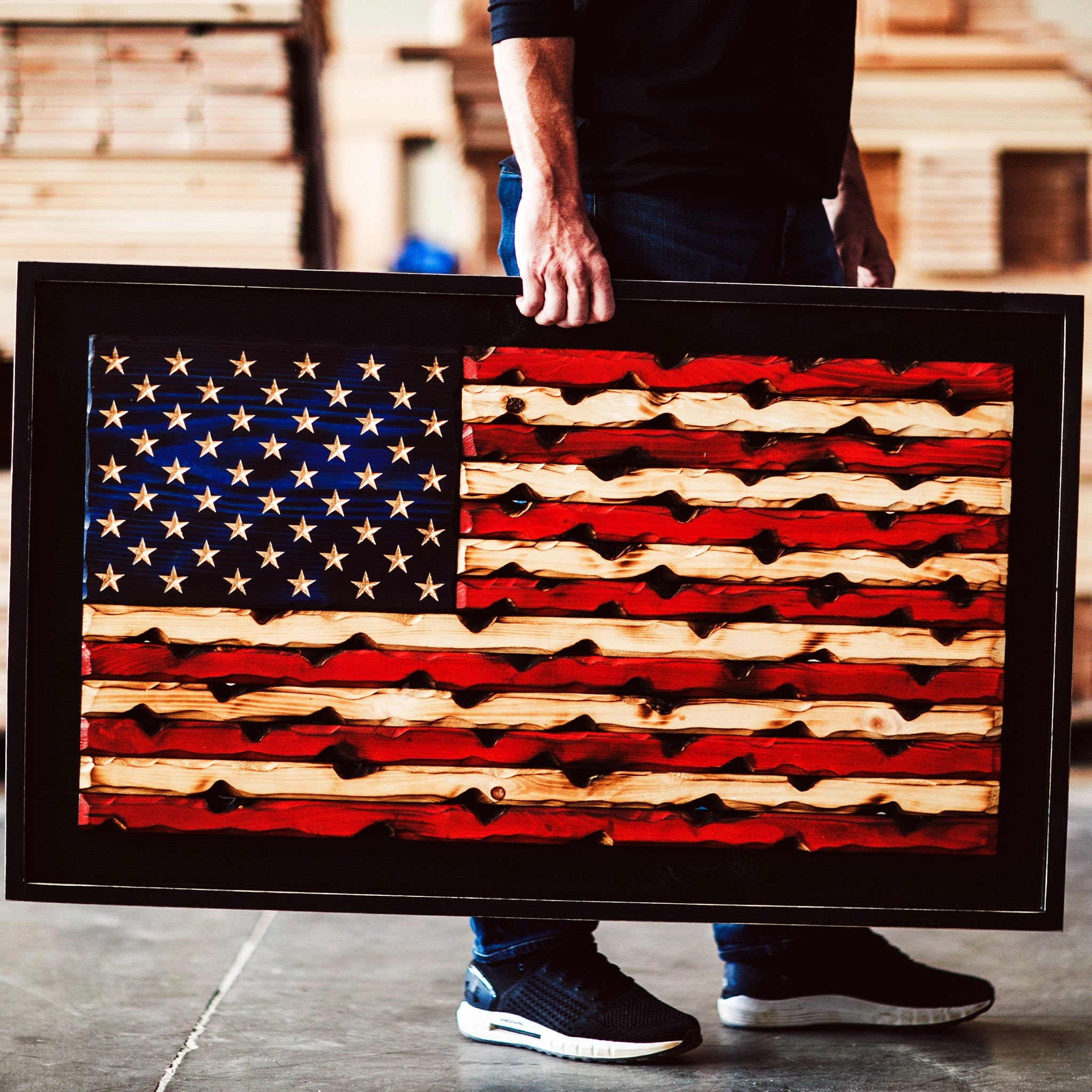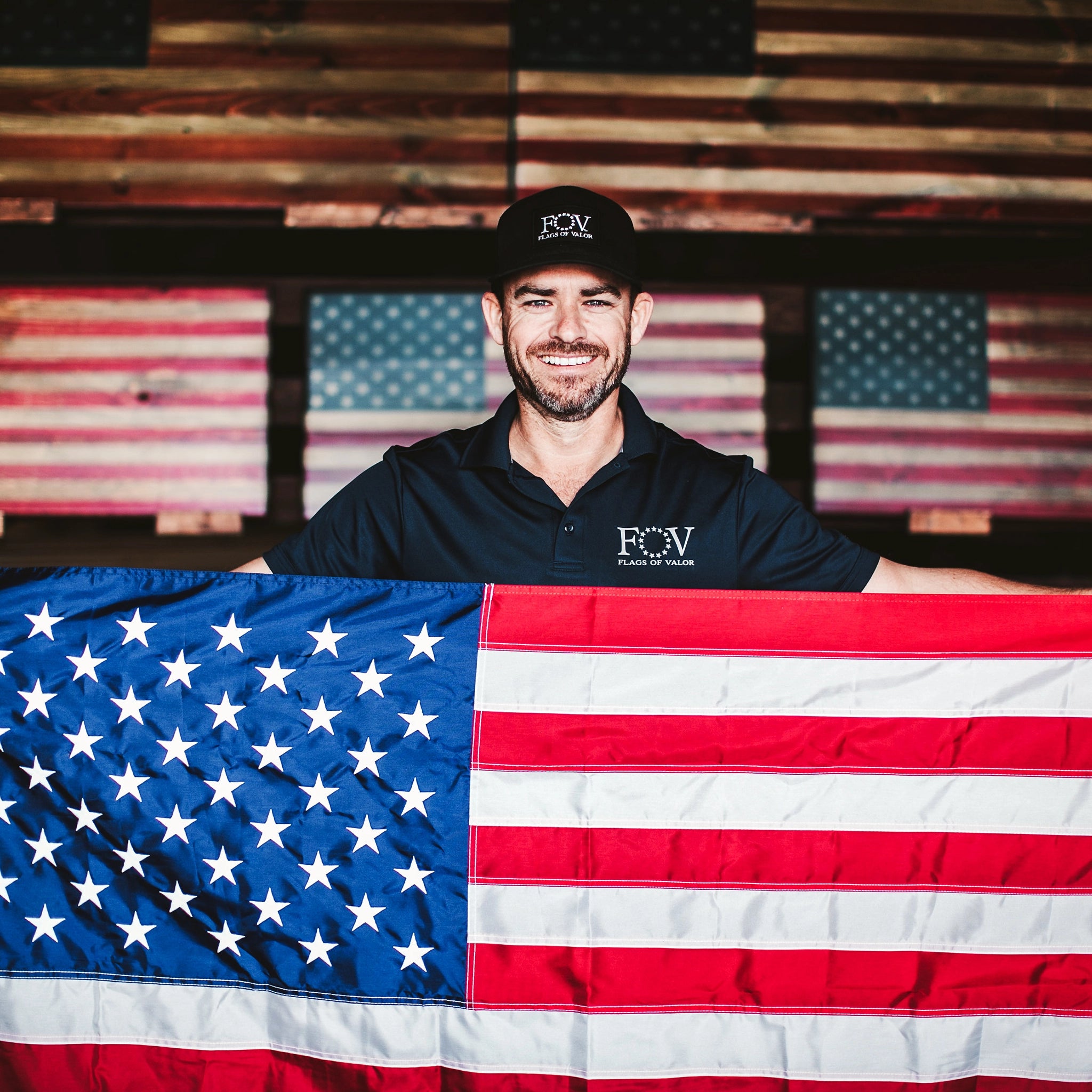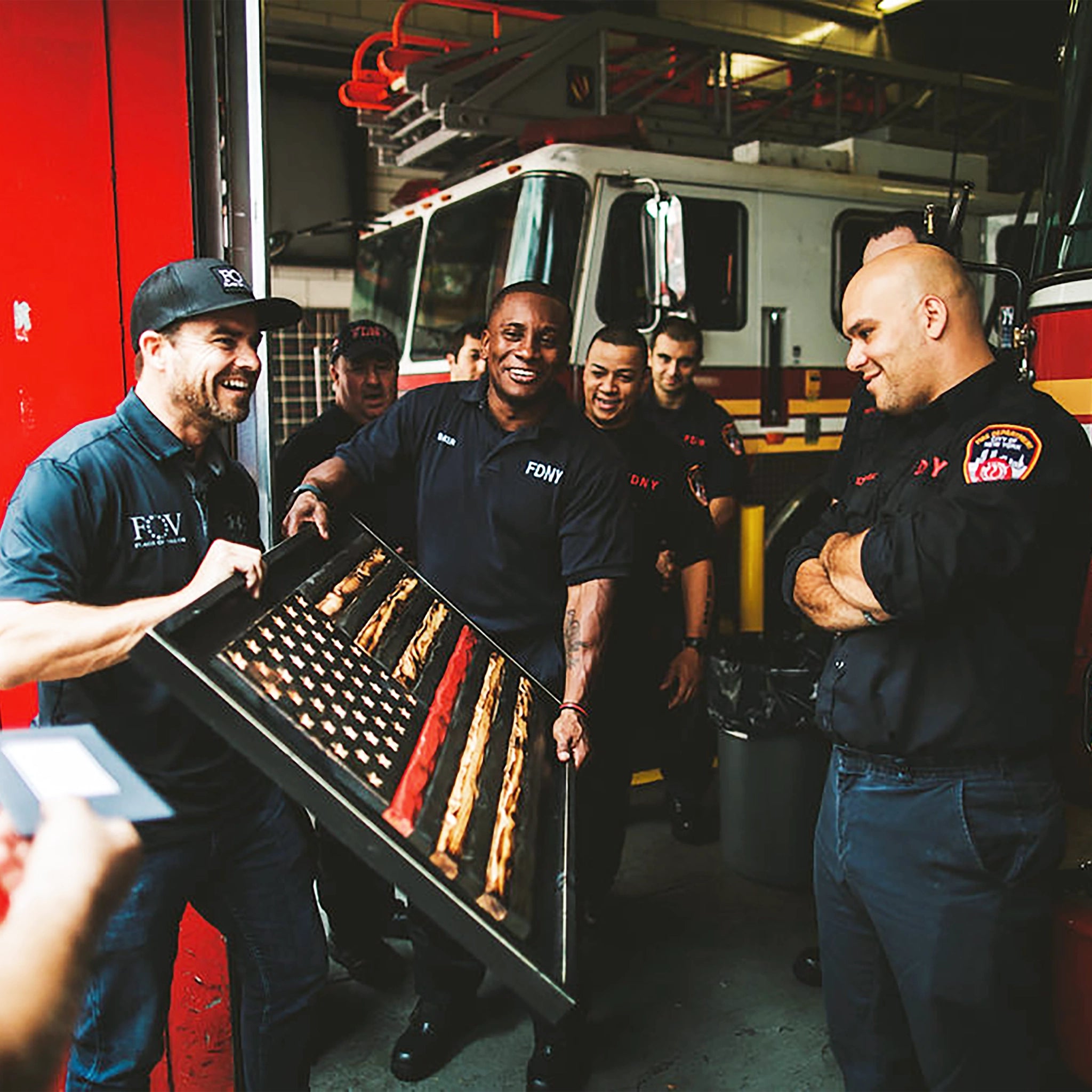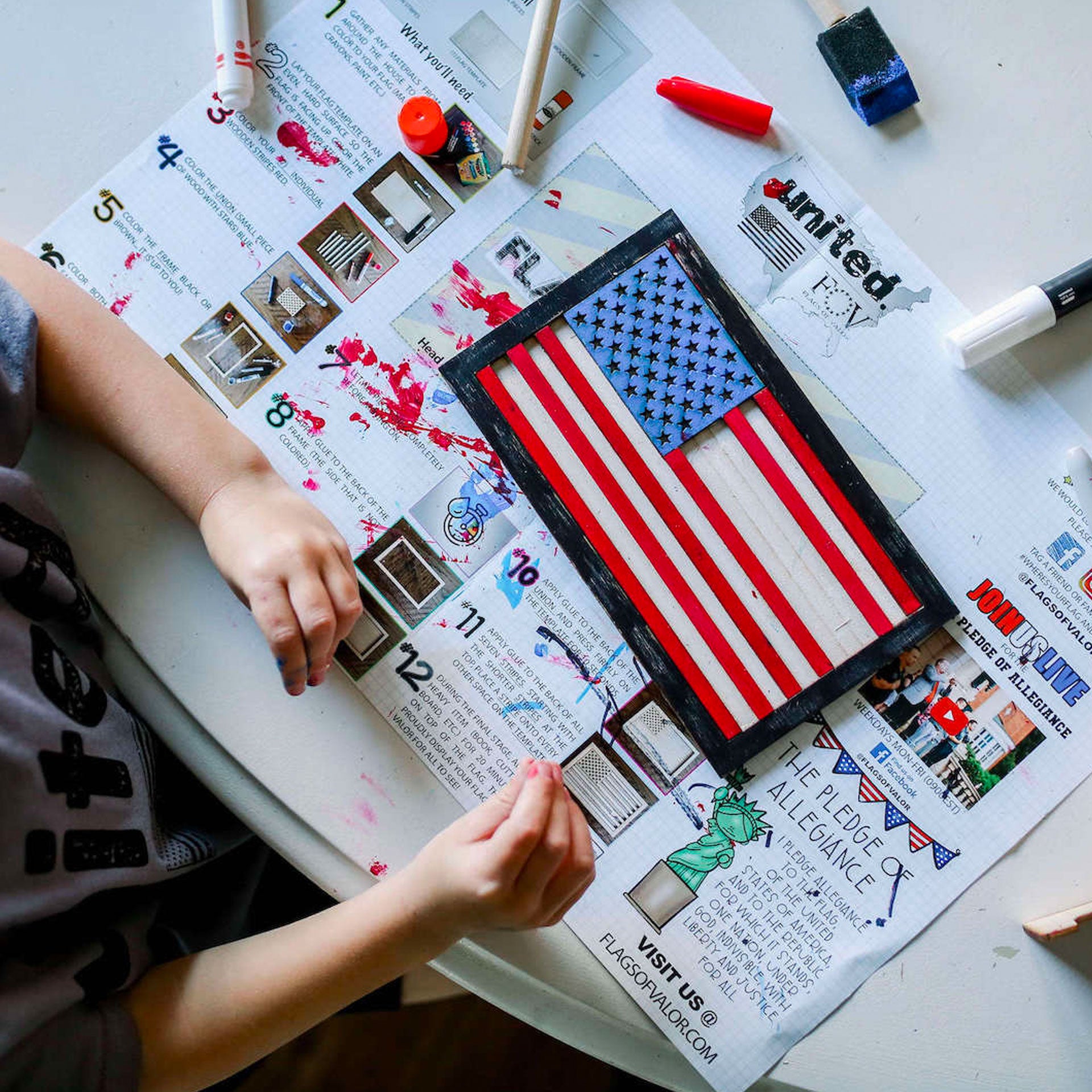We're committed to giving back to the community and supporting important causes. That's why we are proud to announce our partnership with Concerns of Police Survivors (COPS) this May.
For the entire month of May, we will be donating 10% of the profits from every purchase made with promo code COPS10FOV to COPS to support their mission of providing assistance to the families of fallen officers.
In support of this partnership, we sat down with COPS to talk more about the organization, its purpose and how it supports the families of fallen officers.
Here's what they had to say:
What inspired the creation of Concerns of Police Survivors (COPS), and how has the organization evolved since its founding?
C.O.P.S. was formed after our founder, Suzie Sawyer, was part of her husband’s department’s auxiliary. The Prince George’s (MD) County lost two officers in the basement of their precinct as they were fingerprinting a young teen. The lack of support for the surviving families was evident and Suzie went to work to put something in place.
What are some of the specific programs and services that COPS offers to support the families and co-workers of fallen law enforcement officers?
C.O.P.S. hosts 12 hands-on programs in the form of weekend retreats. Each program is specific to each survivorship: spouses retreat, kids camp, adult children retreat, parents retreat, siblings retreat, young adults camp, extended family retreat, fiances & significant others retreat, co-workers retreat, co-workers for couples, and spouses for couples. New in 2023 are the survivor retreats for officers who have died by suicide in accordance with the Public Safety Officers Support Act of 2022.
How does COPS work to promote awareness and respect for law enforcement officers and the sacrifices they make?
C.O.P.S. has always promoted support and respect for law enforcement, but in 2015, we created Law Enforcement Appreciation Day, which is hosted every January 9th. It was after a lot of negativity was happening surrounding Ferguson (MO) and law enforcement all across the country. We wanted to focus on the positives. So each January 9th, we encourage our nation to shine blue lines from their homes or businesses, wear blue, host a Blue Blood Drive, take cards and treats to their local departments, and thank officers when they see them. It has become a national event with even the U.S. Presidents acknowledging the day. We are very proud of this!
Can you share any stories of how COPS has made a positive impact on the lives of families and co-workers of fallen officers?
We serve over 67,000 survivors and they all have their own stories. But one of the best examples I can give is regarding the Kids/Teens program at National Police Week. You see young kids, ages 6-18, who are being introduced to C.O.P.S. for the first time, and often other kids who have never met other surviving kids before. The younger ones cling to their surviving parent and don’t want to go. But our counselors have ways of getting them there so the parents can go to their own sessions at the conference. The kids go to local law enforcement facilities and get to play games, do carnival like activities, and go to counseling sessions. When those kids come back to the hotel and join their parent, it’s incredible to see them hugging their new friends and not wanting to leave THEM now instead of going home. Then they go to all the other programs each year and make lifelong friends who truly understand their grief.
How does COPS work to ensure that the memories of fallen officers are honored and preserved for future generations?
We tell their stories. We tell the story of their survivors. We keep their names and their lives at the forefront because we promise to never forget. Through the programs and National Police Week, we remember them through their families and co-workers who knew them best. With great love comes even greater grief. Talking about the officers and the lives they led keeps their memory alive.
What role do volunteers play in the work that COPS does, and how can people get involved in supporting the organization?
The biggest area we utilize volunteers is at our special events like COPS Walks (hosted in Harpers Ferry WV and Buckeye AZ), as well as golf tournaments held at the Lake of the Ozarks in Missouri (home to the C.O.P.S. National Office). We also need a lot of volunteers during National Police Week each May in Washington D.C. People should follow us on social media, @nationalcops, and check in on our website to keep up with volunteer opportunities.
How does COPS collaborate with law enforcement agencies and other organizations to achieve its mission?
We collaborate with many agencies and organizations with the planning of National Police Week. The main three are C.O.P.S., the National Law Enforcement Officers’ Memorial Fund, and the Grand Lodge FOP and Auxiliary. But there are 20+ agencies that also sit on the National Police Week committee that helps plan for logistics of such a large event each year. We also have the Arkansas Game and Fish Commission and the Missouri Department of Conservation who volunteer at our hands-on programs with helping survivors with several outdoor activities.
What are some of the biggest challenges that COPS faces in its work, and how does the organization address these challenges?
Growth. Unfortunately we are a non profit that growth is not good because it comes with more line-of-duty deaths. But we make it a point to start planning for our growing programs and making changes as needed. We are adapting to growth and hiring more counselors to accommodate more survivors. We are looking at new locations for the retreats. And we have changed our host hotel this year at National Police Week because the old hotel could simply not accommodate us. Funding is a constant challenge, especially in today’s financial climate, but there are a lot of generous people and companies out there that strive to support survivors through our services.
What kind of support does COPS offer to families and co-workers of fallen officers in the immediate aftermath of a death, and how does the organization continue to provide support in the weeks, months, and years that follow?
C.O.P.S. has 55 chapter that operate by survivors themselves at the grassroots level. Our chapters send people to respond to the department and the families in the immediate aftermath to help with funeral planning, benefits, or whatever is needed. They’ve been through it so they know what to say and not to say, do and not do, etc. They introduce them to our national office, which then gets them to National Police Week, into our programs, shows them scholarships and benefit applications, acts a liaison for state and federal benefits, and so much more. We also send them a memorial coin and candle in the first year, with an anniversary card each year following their officer’s death in the month they died so they know we are truly never forgetting them.
